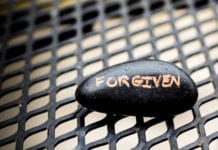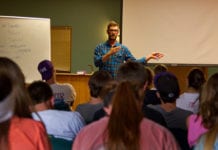Guest Post by Brian Kannel
A few weeks ago I was made aware of a blog post by Brian Kannel speaking of his churches journey with intergenerational cell groups. After reading it, I knew it was a post many of us should be made aware of. I contacted Brian and was given permission to repost his writing. Brian is the lead pastor at York Alliance Church, a cell based church in York, PA. His wife’s name is Amanda and they have four children: Tia, Ethan, Josiah, and Micah.
Check this out…
What does it mean to have an “intergenerational” model of ministry? At our church in York, PA, we’ve been pursuing an answer to that question for nearly fifteen years. Like all people everywhere, we tend to gravitate toward others that are most like us. Teens with other teens. Young married couples with other young married couples. Retirees with other retirees. Left-handed slow pitch softball players with other left-handed slow pitch softball players. Mixing things up never happens naturally.
However, we noticed a problem. The young married couples had questions and problems that were very typical for young married couples: How do I decide on a house to buy? When should we start trying to have a family? When am I old enough to start playing slow pitch softball? And so, they asked others in their community. Predictably, they had no good answers. So, they pooled their ignorance and made the best decisions they could. Meanwhile, as the group of retirees connected with one another, they discovered that while they had a lot of answers, none of them really had any questions. What was more, when they simply talked to one another and compared aches and pains and the current ailment of the day, they found that they didn’t have the energy to even ask questions. Or, for that matter, to play slow pitch softball.
When we made the initial transition from a program-based church to a cell church, we made the determination that our cells would be intergenerational. I’d love to say that it was a wise, well-thought out decision with deep theological grounding, and it’s not that theology wasn’t considered. However, we had a bunch of kids, and we needed to do something with them. Intergeneration cells answered the question; and in the past fifteen years, we’ve seen an incredible blessing for our children (more on that next week). But we quickly discovered that intergenerational cells were not simply a strategy to care for children! With an intentionally integrated community, young adults had older men and women speaking wisdom into their lives. Children suddenly had multiple adopted grandparents who loved and cared for them. The energy of young lives was somehow infused into an older generation. Teens were no longer simply being mentored by a youth sponsor; they were being invested in by an entire family. Single men had a family to eat dinner with; widows had companionship; empty-nesters had children running through their living rooms again, which they could send back to their homes when they were ready to enjoy their hard-earned peace and quiet. And there were great crowds at the slow-pitch softball games.
I’d love to say that once established, maintaining intergenerationality was a breeze, but I’d be lying. Groups would grow and multiply, and the multiplications looked as though they were divided by age. Every young adult that walked through the doors of the church would end up in the same group, until there was a five year spread from the oldest to youngest. But then, a fascinating thing happened: the older groups started asking younger families to join them. Young groups began recognizing the need for an older generation to speak into their lives. Slowly, the values changed. It’s still work, but we all recognize the value of the work.
Brian
Many are hesitant about intergenerational groups. Others are curious. I’m hoping, if intergenerational groups are right for your culture, that this blog post might remove any hesitancy and that your curiosity will drive you to further investigate the possibilities.
Thanks, Brian!










